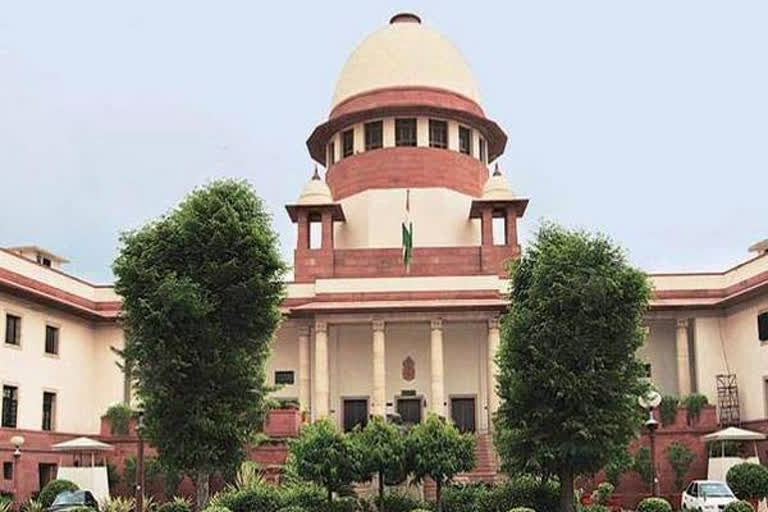New Delhi: Another plea challenging the Constitutional validity of certain sections of the Places of Worship (Special Provisions) Act 1991 was filed in the Supreme Court on Saturday stating that the said Act violates the principles of secularism.
The plea contended that the central government has no legislative competence to fix the retrospective cut-off date as 15th August 1947, when Islamic rule started from 1192 and thereafter foreign rule continued.
The Places of Worship Act,1991, prohibits conversion of any place of worship and provides for the maintenance of the religious character of any place of worship as it existed on 15th August 1947.
The PIL filed by a religious guru from Mathura, Devkinandan Thakur, argues that in 1192 Mohammad Ghori after defeating Prithviraj Chauhan established Islamic rule and foreign rule continued till 15th August 1947, and therefore the date of cut off should be the date when India was conquered by Ghori and religious places of Hindus, Jains, and Sikhs, as were existing before 1192, should be restored. Petitioner contends that center has "no power to legalize those inhuman barbarian acts".
"Islamic rule came by the of invasion and invaders destroyed hundreds of places of worship and pilgrimage to show the might of Islam to realize the Hindus Jains Sikhs that they having conquered and are being ruled and have to follow the dictum of Ruler. Hindus Jains Sikhs Buddhists, the native of the countries were deprived of their right to life liberty and dignity from 1192 to 1947," the plea stated.
"The question is as to whether even after the independence, they cannot seek judicial remedy to undo the historical wrong through judicial proceedings to establish that the law is mightier than the sword," read the plea.
Citing Katyayan, the petitioner stated that temple property is never lost even if it is enjoyed by strangers for hundreds of years and there can not be any question of diety losing its rights by lapse of time.
The Centre's decision to keep Ayodhya's Ramjanbhumi-Babri Masjid dispute out of the worship Act is called discriminatory by the petitioner. He argues that Lord Krishna and Lord Ram are both worshipped equally and are both incarnations of Lord Vishnu and therefore both should have been treated equally.
The petitioner submitted that Hindus are fighting for the restoration of the birthplace of Lord Krishna for many decades and peaceful public agitation may become violent if they are not allowed to avail of judicial remedy.
The pleas sought direction to declare that Section 2, 3 and 4 of the Places of Worship (Special Provisions) Act, 1991 "void and unconstitutional" for being violative of Articles 14, 15, 21, 25, 26, 29 of the Constitution of India in so far as it legalises 'the ancient historical and puranic places of worship and pilgrimage', illegally occupied by foreign invaders.



